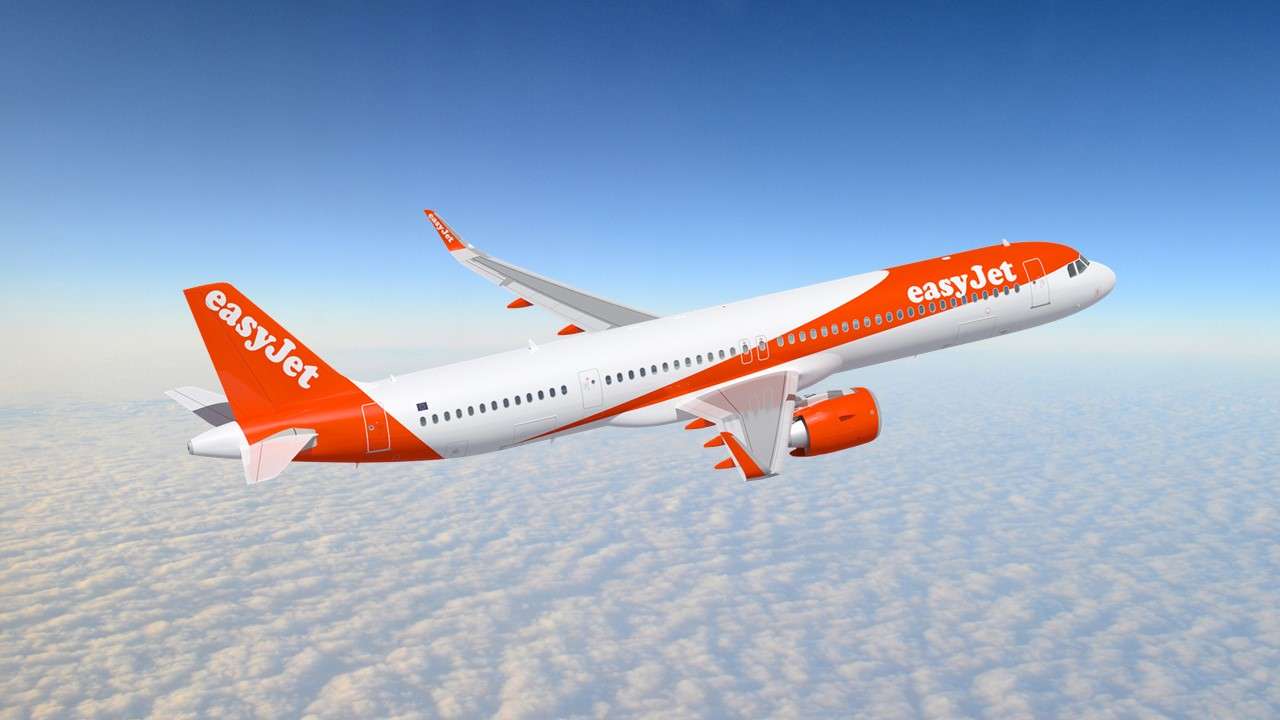easyJet reported a strong performance in its full year results, ending September 30, 2024, after a record summer quarter.
The airline reported a total profit after tax of £452 million for the year, up from £324 million a year prior. The result comes on the back of group revenues climbing 14% to £9.3bn. The group’s revenues totalled £9.3bn, up 14% from the previous year. The company’s headline EBITDA costs were up only 13% to £7.9bn, as well as its EBITDA totalling £1.4bn for the year, up 21% from the year prior. Fuel costs were up 9% in the year, totalling £2.2bn.
Passenger revenues were up 9% for the year, totalling £5.7bn, while airline ancillary revenue was up 13% to £2.5bn for the year. The company’s holiday segment saw the largest increase at 47% over the previous year, amounting to £1.1bn in revenue.
The company’s total airline revenue per seat was up 2% to £81.35, while total cost per seat was up 1% to £77.17. Capacity for the period was up 8% compared to the previous year.
For the September-ending quarter, the airline’s revenues totalled £3.4bn – up from £3.1bn in the same period a year prior. EBITDA costs were £2.5bn, up from £2.3bn, while EBITDA totalled £929 million – up from £827 million. Passenger revenue for the quarter was up from approximately £2bn to £2.1bn, while ancillary and holiday revenues were both up – totalling £851 million and £490 million, respectively. Fuel costs for the quarter increased marginally from £675 million up to £684 million.
During the quarter, the airline flew 30 million seats, marking a 5% increase on the same period last year, with a load factor of 92% - remaining flat from the summer quarter last year. The company’s full year load factor was 89.3%, again remaining flat from the previous year. Total airline revenue per seat in the quarter was £97.29, up from £96.41.
Following the strong performance, the airline’s board recommended an ordinary dividend of 12.1 pence per share, amounting to £92 million. This will be paid on March 21, 2025, and represents 20% of the headline profit after tax.
easyJet’s fleet comprised of 347 aircraft as of the end of September, compared to 336 aircraft at the end of September last year. The airline had acquired 16 new A320neo family aircraft as well as received delivery of eight mid-life A320 leased aircraft. The airline said 13 older leased aircraft exited the fleet at the end of their lease-terms – all of which were A319 aircraft. As of the quarter end, 54% of its fleet is owned, with the remaining 46% being on lease. The company has firm orders for 131 A320neo and 168 A321neo aircraft.
“We seek to further strengthen our position in key markets as the competitive landscape evolves and becomes more constrained,” the airline read in its report. easyJet was proposed as the short-haul remedy taker to operate slots at Milan Linate and Rome Fiumicino. “[This] gives us a one-off opportunity at these high yielding slot-constrained airports”. The new bases are planned to open in summer next year with a combined eight aircraft.
As of September 30, 2024, the company had £2.1bn in debt – excluding lease liabilities, which separately totalled £1.2bn. Net cash at the end of the period was £181 million and net assets were valued at nearly £3bn.
“The outlook for easyJet is positive and travel remains a firm priority with consumers who value our low fares, unrivalled network and friendly service,” said easyJet CFO and CEO designate Kenton Jarvis. “The airline will continue to grow, particularly on popular longer leisure routes like North Africa and the Canaries and we plan to take 25% more customers away on package holidays, as easyJet holidays continues to thrive.”
The company said its holiday division is expected to grow by 25% in the following year from a base of 2.6 million customers. For the first half of the following year, it has sold 82% of bookings.
In addition, the company has sold 80% of bookings for the winter quarter, up two percentage points compared to last year. The quarter’s revenue per available seat kilometre (RASK) is expected to be broadly flat. The subsequent quarter has sold 26% of bookings, again up two percentage points compared to the previous year. With headwinds including the timing of Easter holiday moving to the next quarter, along with the prior year release of £34 million aged balances – the company’s second quarter RASK is expected to be down four percentage points.
The company’s cost per available seat kilometre (CASK) excluding fuel is expected to be slightly reduced, driven by productivity and utilisation benefits. Fuel CASK is expected to reduce by 10% for the next full year.
The company’s capacity for the next full year is expected to grow by 8%. The first half of the full year is set to see capacity increase by 12%, driven by its increased capacity into winter sun destinations. Second half capacity is expected to increase by 5% compared to the same period a year prior.
In other news, the airline also signed a memorandum of understanding (MoU) with Braathens Renavia along with Mana Group and World Fuel Services for the long-term supply of sustainable aviation fuel (SAF). The agreement supports the airline’s decarbonisation strategy and is expected to give easyJet access to up to 150,000 tonnes of SAF – including up to 75,000 tonnes of e-SAF – from 2030. The supply of SAF will support its operations in the EU and UK.

